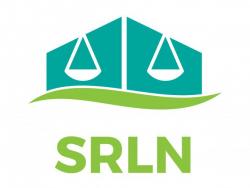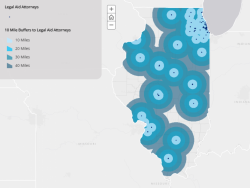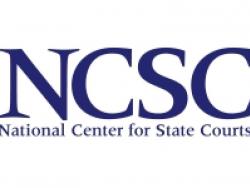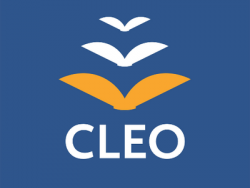Document Author
Year Published
- 2015 (36) Apply 2015 filter
- 2016 (25) Apply 2016 filter
- 2013 (22) Apply 2013 filter
- 2020 (17) Apply 2020 filter
- 2021 (14) Apply 2021 filter
- 2018 (12) Apply 2018 filter
- 2014 (11) Apply 2014 filter
- 2017 (11) Apply 2017 filter
- 2011 (6) Apply 2011 filter
- 2012 (6) Apply 2012 filter
- 2007 (5) Apply 2007 filter
- 2010 (5) Apply 2010 filter
- 2003 (4) Apply 2003 filter
- 2005 (4) Apply 2005 filter
- 2008 (4) Apply 2008 filter
- 2009 (3) Apply 2009 filter
- 2019 (3) Apply 2019 filter
- 2000 (2) Apply 2000 filter
- 2004 (2) Apply 2004 filter
- 2022 (2) Apply 2022 filter
- 1975 (1) Apply 1975 filter
- 1988 (1) Apply 1988 filter
- 1995 (1) Apply 1995 filter
- 1999 (1) Apply 1999 filter
- 2002 (1) Apply 2002 filter
- 2014; 2017 (1) Apply 2014; 2017 filter
- 2023 (1) Apply 2023 filter
- SRLN (1) Apply SRLN filter
Topic
- (-) Remove 100% Access to Justice filter 100% Access to Justice
- Research (79) Apply Research filter
- Reports, Evaluations, Best Practices, Surveys (74) Apply Reports, Evaluations, Best Practices, Surveys filter
- Self-Help Centers (69) Apply Self-Help Centers filter
- Strategic Planning (61) Apply Strategic Planning filter
- Trial Court Self-Help (61) Apply Trial Court Self-Help filter
- Courts (59) Apply Courts filter
- Reports (52) Apply Reports filter
- Linking a Self-Help Center to Other Services (31) Apply Linking a Self-Help Center to Other Services filter
- Articles & SRLN Briefs (27) Apply Articles & SRLN Briefs filter
- Allied Professionals (26) Apply Allied Professionals filter
- Simplification (26) Apply Simplification filter
- Ethics Education (25) Apply Ethics Education filter
- Best Practices for Self-Help Centers (24) Apply Best Practices for Self-Help Centers filter
- Legal Aid (24) Apply Legal Aid filter
- Judges (23) Apply Judges filter
- Unbundling (23) Apply Unbundling filter
- Triage (21) Apply Triage filter
- Justice Tech Entrepreneurs (20) Apply Justice Tech Entrepreneurs filter
- Technology (20) Apply Technology filter
- Private Bar (19) Apply Private Bar filter
- Forms (17) Apply Forms filter
- Judicial Ethics (17) Apply Judicial Ethics filter
- ATJ Commissions (14) Apply ATJ Commissions filter
- Presentations (13) Apply Presentations filter
- Evaluation (12) Apply Evaluation filter
- Plain Language & LEP (12) Apply Plain Language & LEP filter
- Working Groups (12) Apply Working Groups filter
- Best Practices (11) Apply Best Practices filter
- Human Centered Design (10) Apply Human Centered Design filter
- Libraries (10) Apply Libraries filter
- Starting a Self-Help Center (10) Apply Starting a Self-Help Center filter
- Surveys (10) Apply Surveys filter
- Funding (9) Apply Funding filter
- Plain Language (9) Apply Plain Language filter
- Triage & Service Portal (9) Apply Triage & Service Portal filter
- Forms (8) Apply Forms filter
- Map Gallery (8) Apply Map Gallery filter
- Scaling in Court Systems (8) Apply Scaling in Court Systems filter
- Law Schools (7) Apply Law Schools filter
- Conferences & Summits (6) Apply Conferences & Summits filter
- Impact of Self-Represented Litigant Innovations on Cost and Efficiency (6) Apply Impact of Self-Represented Litigant Innovations on Cost and Efficiency filter
- Justice for All (6) Apply Justice for All filter
- Managing a Self-Help Center (6) Apply Managing a Self-Help Center filter
- Administrative Agencies (5) Apply Administrative Agencies filter
- Attorney Ethics (5) Apply Attorney Ethics filter
- Consumer Adoption (5) Apply Consumer Adoption filter
- Integration with Institutional Process (5) Apply Integration with Institutional Process filter
- Tools for Evaluating Self-Help Programs and Services (5) Apply Tools for Evaluating Self-Help Programs and Services filter
- Webinars (5) Apply Webinars filter
State
- California (26) Apply California filter
- Alaska (11) Apply Alaska filter
- Florida (8) Apply Florida filter
- Maryland (8) Apply Maryland filter
- New York (8) Apply New York filter
- Illinois (6) Apply Illinois filter
- Washington (6) Apply Washington filter
- Colorado (4) Apply Colorado filter
- Utah (4) Apply Utah filter
- Michigan (3) Apply Michigan filter
- Pennsylvania (3) Apply Pennsylvania filter
- Hawaii (2) Apply Hawaii filter
- Indiana (2) Apply Indiana filter
- Massachusetts (2) Apply Massachusetts filter
- Minnesota (2) Apply Minnesota filter
- North Carolina (2) Apply North Carolina filter
- Texas (2) Apply Texas filter
- Virginia (2) Apply Virginia filter
- Arkansas (1) Apply Arkansas filter
- Delaware (1) Apply Delaware filter
- District of Columbia (1) Apply District of Columbia filter
- Georgia (1) Apply Georgia filter
- Idaho (1) Apply Idaho filter
- Kentucky (1) Apply Kentucky filter
- Louisiana (1) Apply Louisiana filter
- Missouri (1) Apply Missouri filter
- Montana (1) Apply Montana filter
- Nebraska (1) Apply Nebraska filter
- New Jersey (1) Apply New Jersey filter
- New Mexico (1) Apply New Mexico filter
- North Dakota (1) Apply North Dakota filter
- Ohio (1) Apply Ohio filter
- Oregon (1) Apply Oregon filter
- South Carolina (1) Apply South Carolina filter
Region
Tags
Post date
Search results

Resolution: Supporting Recognition of Chief Judge Eric T. Washington, DC Court of Appeals (2017)
Self-Represented Litigation Network Resolution 1-2017 Supporting Recognition of Chief Judge Eric T. Washington, District of Columbia Court of Appeals WHEREAS, Chief Judge Eric T. Washington has served as vice-chair or chair of the Access, Fairness and P ...
Report: Call to Action: Achieving Civil Justice for All (Conference of Chief Justices (CCJ) Civil Justice Improvements Committee 2016)
The Conference of Chief Justices (CCJ) Civil Justice Improvements Committee's report, Call to Action: Achieving Civil Justice for All, developed with the National Center for State Courts (NCSC) and Institute for the Advancement of the American Legal ...
Report: White House LAIR: Civil Legal Aid Research Workshop Report (DOJ 2016)
From the Executive Summary: On May 20 – 21, 2015, the U.S. Department of Justice’s Office for Access to Justice (ATJ) and National Institute of Justice (NIJ), in collaboration with the National Science Foundation (NSF), hosted a Civil Legal Aid Research W ...

Presentation: Know Your Users- The Importance of User Experience in Court Planning and Operations (Court Technology Conference 2017)
The Illinois Supreme Court and SRLN created a mapping application to assess the court user's experience in Illinois. “User experience and thinking about our users helps increase efficiencies, helps us know what we don't know, and helps us better ...
Study: Self-Represented Litigants in Family Law Cases In Jackson County, Missouri (Cook 2007)
This study is unique because it included the self-represented in its survey. From the Abstract: This report is based on surveys that examined the attitudes and perceptions of judges, the family law bar, family court staff, and self-represented litigants r ...
Report: Resources to Assist Self-Represented Litigants: A Fifty State Review of the State of the Art (Greacen 2011)
This report was originally commissioned by the Michigan State Bar Foundation to assist Michigan’s Solutions on Self-Help (SOS) Task Force, but modified to serve as a national resource so that it may be of value to other jurisdictions working to enhance su ...

Report: Building A Litigant Portal: Business and Technical Requirements (NCSC 2015)
With funding from State Justice Institute, Thomas Clarke of the National Center for State Courts assembled two advisory committees – one to develop the business requirements for a litigant portal, and another to examine the technical requirements necessar ...
Resource: Illinois Supreme Court Commission on Access to Justice Uses SRLN Maps for Statewide Strategic Planning
The Illinois Supreme Court Commission on Access to Justice has started using the SRLN demographics maps for presentations to circuit clerks, circuit court judges, civil legal aid and pro bono practitioners. “The maps helped provide context for why access ...

SRLN COVID-19 Brief: Alaska Courts and Attorneys Keep Probate Matters Moving (News 2020)
While many states have reported difficulties in processing probate cases during the Covid-19 pandemic, Alaska has been remarkably successful in moving these cases along, and even to some extent expediting them beyond what had been happening before the cri ...

Paper: Community Justice Help: Advancing Community-Based Access to Justice (CLEO 2020)
This discussion paper provides a framework to understand the mechanisms that cultivate reslient access to justice communities. The paper offers universal principles that support community-based justice help systems. In particular, the paper proposes an ap ...